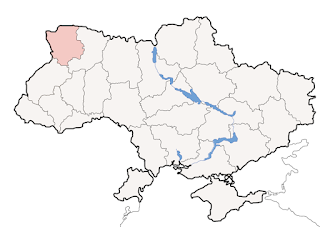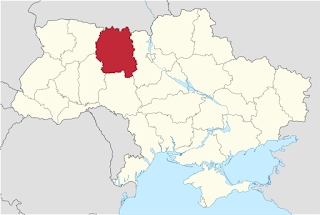Having read a couple of books recently set in Volhynia, I’m reminded again of its complicated past, influenced by different political, religious and ethnic groups. I need to refresh my frame of reference and look at a map. My great-grandparents, ethnic Germans who were originally Lutheran, moved into Volhynia in the 1860s from the Gdańsk area (then called Danzig) and later converted to Baptist.
On the maps, the 2 oblasts are separated by the Rivne Oblast. There are 24 oblasts (provinces in total).
 |
| Volyn Olbast in modern Ukraine |
Today, the area known as the Volyn Oblast is further west and my mother’s territory is part of the current Zhytomyr Oblast. Other main centres in the area included Pulyny (called Pulin by the Germans) and Koresten to the north (300 km from Chernobyl).
It’s all confusing and I keep messing up. With the current war, all that messed up history stirs up memories of past injustices. So hard to keep one’s self-identity when names of your home are in flux and your people have disappeared.
No wonder my mother never knew if she was German, Russian, Ukrainian. No wonder she embraced her faith and later, being Canadian.



No comments:
Post a Comment